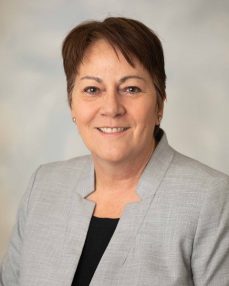Welcome
October 21, 2021
Dear Alumni and Friends,
I am happy to share this 72nd annual Jackson School of Geosciences Newsletter. Despite the seemingly endless craziness of the pandemic and a winter freeze that shut down Texas for a week, the Jackson School of Geosciences has remained vibrant. The tireless efforts of faculty, research scientists, staff and students, together with the generous support of our alumni and friends, kept the engines of science and education running throughout the past year. Just take a look through this year’s Newsletter and you will see what I mean. From cover to cover, we report on great examples of cutting-edge research vital to the big issues facing society and of a world-class education with student opportunities offered by no other institution.
One thing that jumps out to me as I scan the Newsletter is the breadth and impact of the work being done at the Jackson School. The need for skillful and broadly trained geoscientists has never been greater as societies seek to navigate the simultaneous challenges of climate change impacts and reducing the carbon footprint of our energy systems while meeting the natural resource and energy pressures of a large — and still largely poor — global population. What makes geoscientists so vital in this environment is that we are educated to work on open, complex systems that are often under-defined and in wringing solutions out of incomplete data or knowledge. Many of our former students took those skills to the oil and gas industry, and we are proud of their accomplishments in that arena. We continue to engage the industry through consortia and partnerships and seek to work hand-inhand with our historic partners to take on the challenges of energy production through the 21st century.
The scientific reach of our current faculty, researchers and students across the Earth sciences is impressive. The Jackson School encompasses geosciences across the spectrum of fundamental to applied research, from the core to the cosmos, and we seek to educate our students with the skills and knowledge needed to be leaders across many challenges and themes. Our breadth is apparent in stories such as “Powering the Energy Transition,” on page 32, which shows how the Jackson School’s Bureau of Economic Geology is applying the wealth of oil and gas knowledge it helped build over the last century to lead in the energy transition, with an eye to keep Texas front and center in energy production.
Simultaneously, our students are finding new, and sometimes surprising, ways to use their geoscience educations. I hope you enjoy reading about some of these alumni in “The Geosciences Advantage” on page 56. In a fast-changing world, we must prepare students with important, transferable skills and imbue them with the adventurous and entrepreneurial spirit the new world demands of them.
Take note of our ongoing research on climate and water issues and natural disasters, including right here at home in Austin. The Department of Geological Sciences’ Dev Niyogi, for instance, is helping the city combat extreme heat areas in the urban core (page 18), and researchers at our Institute for Geophysics are helping Austin safeguard its lakes (page 54).
On page 74, we report great news on the reinvigoration of our GeoFORCE Texas outreach program under the leadership of Director Leah Turner, and the promise of our Undergraduate Research Traineeship Experience (RTX) program in helping students transition to college. You can read about the Jackson School’s participation in a worldwide program, Unlearning Racism in Geosciences, that helped 80 Jackson School participants to frame ideas and plans for making the Jackson School a more inclusive and welcoming place. In late breaking news, the Jackson School named its first associate dean for diversity, equity and inclusion, Professor Julia Clarke. We are extremely excited to welcome Julia, a longtime champion of equity and diversity in the school, to this new position and will report in more detail in other forums soon.
We are pleased to share on page 86 the wonderful news that Professor Ian Dalziel is receiving the prestigious Penrose Medal this fall from the Geological Society of America (GSA). The Penrose Medal is GSA’s top honor and is given to Ian in recognition of his many contributions to science’s understanding of the assembly and breaking apart of the Pangea supercontinent. Finally, we ran all three of our summer field camps this year without a hitch! See page 70.
It is impossible to look at the Newsletter without a sense of pride and the feeling that the Jackson School is a special place. It is special. I am so proud of the people in this school and all they accomplish. I am sure that you share this same pride and joy!
Hook ’em and enjoy,
Claudia Mora, Dean
Back to the Newsletter

